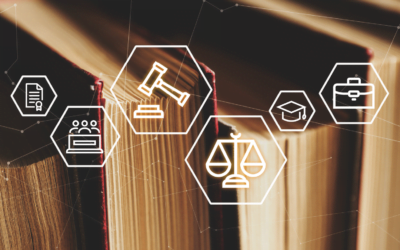2.1.4 Data anarchy?
Bruno Wildhaber
If you follow the discussion about data and its development over the last few years, you inevitably come up against five focal points, namely data protection aspects, security issues, digitization, AI (artificial intelligence) and cloud. We have already highlighted these aspects to some extent. In this chapter, we will now clarify the extent to which data are or could be controllable at all.
The primary issue here is how to deal with the fact that data itself has an ever-increasing value. This can be clearly seen in the discussion about copyrights, an arena in which authors and the IT industry, as well as various interest groups, have been fighting for decades. Despite this long-running discussion, solutions still do not seem to be within reach. Age-old business models meet new technologies. Policymakers then tend to apply these old models to the latest developments, which usually fails. What remains is the perplexed entrepreneur or user who can only watch this goings-on with a shake of the head.
So what does controllability mean in this context? Is it the requirements of the GDPR that force me to know all personal data at any time, and even to be able to delete them? Is it my uneasy feeling about storing data in a cloud without really knowing what that cloud actually is? How much knowledge can be expected from a company’s management, or is ignorance acceptable? What skills do I need to build so that I can answer these questions? Who owns the data I use for my business analyses? Who owns the data I use in cloud offerings? What data is generated when using videoconferencing and who owns the metadata, for example?
Controllability means transparency. An age-old credo that underlies the GDPR as a fundamental principle. But this transparency can be obscured at any time. Today’s GTC constructs are designed in such a way that it is virtually impossible for the data provider to actually track what is happening with his data. Big tech has a central role here. Legal regulation of data use will not be prevented, and the major providers are unlikely to give up their sinecures voluntarily. Hardly ever in economic history have a few companies been able to generate profits with almost zero resource input, based on resources that do not belong to them. This unique process must at least be questioned. On the other hand, users must also be held accountable. Those who actively promote monopolization because they supposedly rely on the standard product are not using their intellectual capital. When even security-critical infrastructures depend on a software provider that can pull the plug at any time, the expensive tanks are no longer even useful as toys. Convenience has a very high price, here possibly the price of freedom.
Mastering one’s own data as well as possible is becoming a survival factor; i.e., the digital transformation urgently needs adequate information governance!
This means control over both the legal framework (contracts) and the technical deployment. The framework conditions are becoming tougher and so are the means used to control data.
Our forecast: …







0 Comments